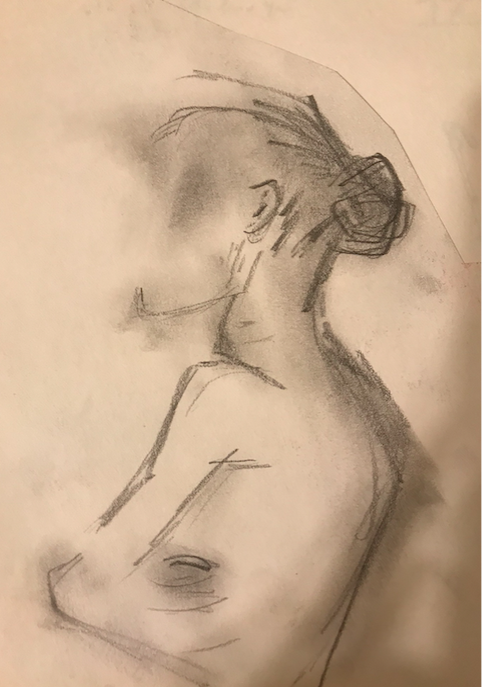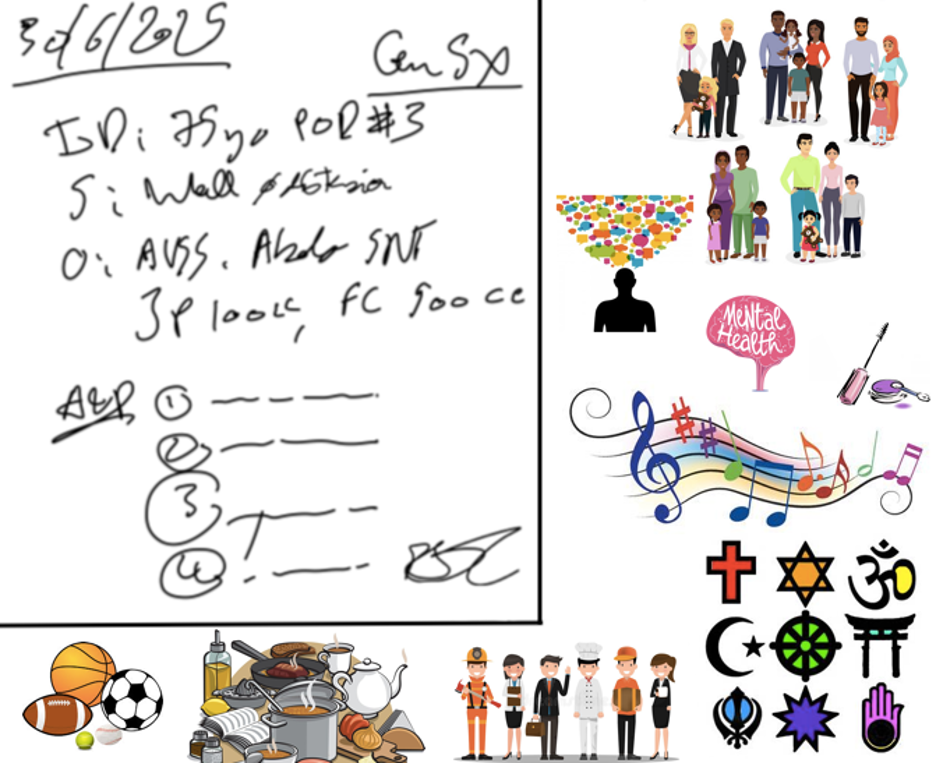
In the previous workshops, one of the patient-teachers mentioned that after a mastectomy, one of the nurses had made a comment “… you must not feel like a woman anymore.” The nurse did not have a malicious intent and most likely wanted to sympathize with the patient, but had made an assumption about the patient’s feelings. I, in fact, was once told by a patient about her fear of losing her “femininity” after a mastectomy, and possibly the nurse had had a similar experience as well. However, it is crucial that we do not lose track of the individuality of each patient, and avoid generalizing their experiences and feelings. Two patients undergoing the same procedure can have different and unique concerns, feelings and perceptions from one another. It is easy to let the faces of the patients blur into their condition, as depicted here, but that can adversely affect our therapeutic relationship with them (and each other). This sketch is a reminder about not losing sight of the individuality of each patient and respecting the uniqueness of their experiences.
Amir Sabouhanian


